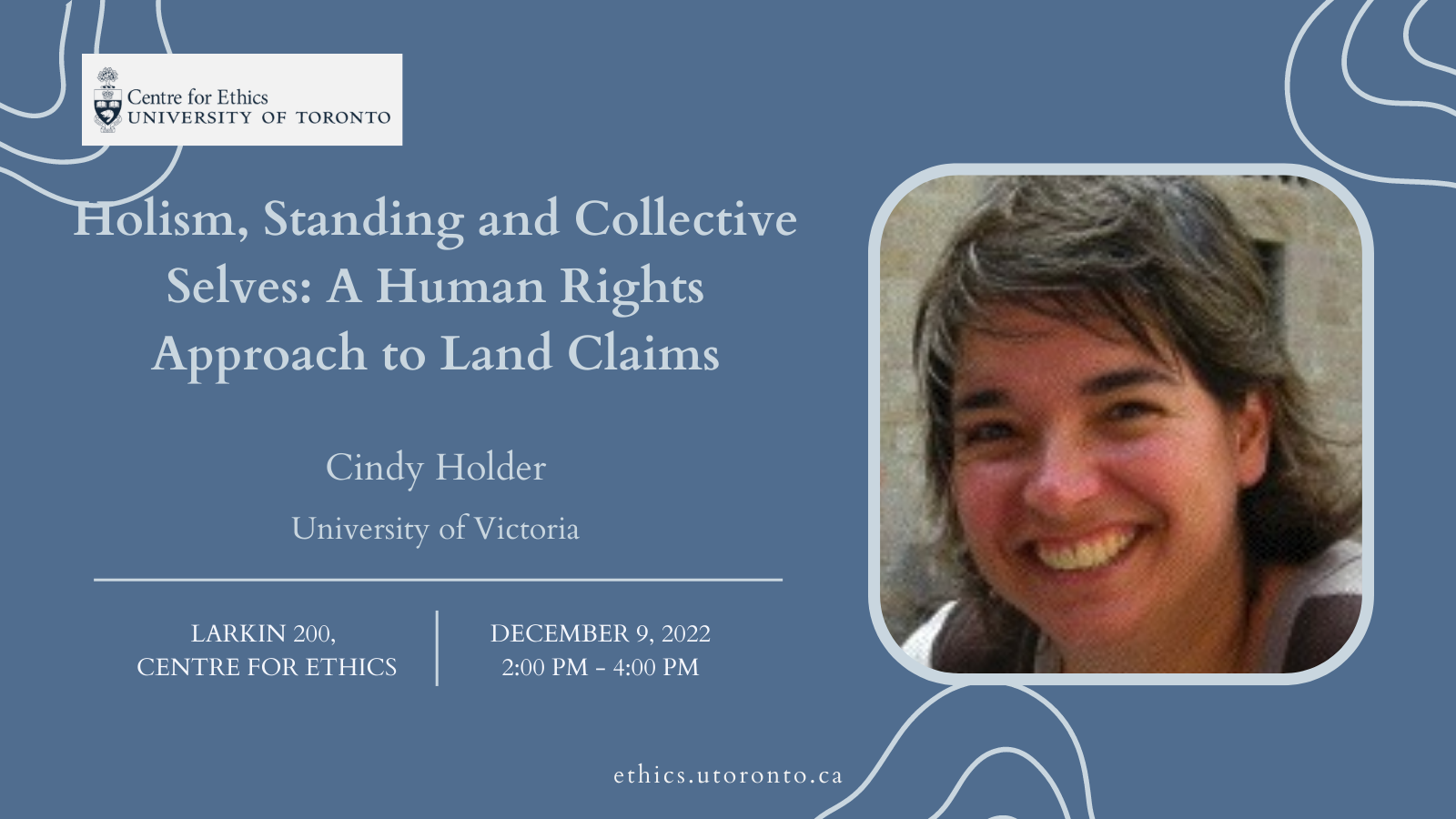
► To stay informed about other upcoming events at the Centre for Ethics, opportunities, and more, please sign up for our newsletter.
Holism, Standing and Collective Selves: A Human Rights Approach to Land Claims
A human rights framing is strategically very attractive in advocacy for land claims, because of its international reach and influence. However, there are a number of well-documented concerns about the way human rights characterizes what is at issue, both in its own terms and as means of advancing the larger purposes within which many land claims are embedded, especially in relation to land claims by Indigenous peoples. In this paper I set out features of human rights that can and should be emphasized to make a human rights framing not only usable for claims with respect to land but useful and effective. I argue that the holistic approach to human life and experience, the role of standing in explicating and establishing claims, and the conceptualization of subjectivity as collective and not only individuated make it possible to leverage universalism to shift the justificatory onus onto those who would deny a land claim without presupposing a universal self or subject. In so doing, a human rights framing offers resources for exposing the bad faith that is at the heart of many denials of land claims with respect to land. A human rights framing is statist and this this has to be borne in mind when deciding whether to deploy it in a particular circumstance. However, there are claims with respect to land that statism will not distort or undermine, and a human rights framing can be of use in those cases.
► this event is in-person at the Centre for Ethics (Larkin building, room 200)

Cindy Holder
University of Victoria
Fri, Dec 9, 2022
02:00 PM - 04:00 PM
Centre for Ethics, University of Toronto
200 Larkin
